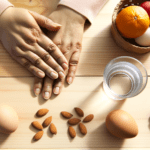The Cultural Context of Menopause
In a culture that often glorifies youth and productivity, the thought of menopause and the changes it brings can evoke trepidation. For many, it conjures images of hot flashes, mood swings, and sleepless nights. However, menopause is not a uniform experience and cultural perceptions play a significant role in how it is navigated. In non-Western societies, particularly those less influenced by modernization, menopause is not typically viewed as a disorder. Instead, it is often seen as a natural transition, a time for growth, and an opportunity to realign with one’s values and well-being.
Challenging Negative Stereotypes
Negative stereotypes surrounding menopause are prevalent, especially in Western societies where there is a tendency to medicalize natural life processes. These stereotypes can lead to a sense of dread and resignation among women who are approaching or experiencing menopause. However, there is a growing movement to challenge these perceptions and support a more empowering narrative. By recognizing the diversity of menopausal experiences and the individuality of each woman’s journey, we can begin to dispel the discouraging connotations and embrace menopause as a stage of wisdom and insight.
Menopause as an Opportunity for Growth
Menopause can be a window of opportunity and a new beginning. It is a time when women can focus on self-care, reflection, and meditation. For those who have completed their major responsibilities, it can be a period of relief and a chance to shift awareness within. However, not all women are retired or free from responsibilities during menopause, which can make the experience daunting. Integrating ancient wisdom, such as Ayurvedic principles, into modern life can help balance menopause with daily activities, supporting a graceful and empowered transition.
Ultimately, menopause is a natural life transition that all women will experience if they live long enough. By starting early and preparing for menopause, integrating holistic approaches into daily life, and seeking support and guidance, women can embrace this transition with confidence and grace.
Understanding Menopause Through Ayurveda
Ayurvedic Stages of Life
In Ayurveda, life is divided into three major stages that correspond to the three doshas: Kapha, Pitta, and Vata. Childhood, or Brahmacharya Ashram, is dominated by Kapha, the dosha of earth and water, symbolizing growth and stability. Adulthood, or Grihastha Ashram, is the Pitta stage, where the fire element signifies achievement and transformation. Elderhood, or Sannyasa Ashram, is the Vata stage, characterized by air and ether, reflecting a time for reflection, wisdom, and letting go of material pursuits.
Doshas and Their Role in Menopause
As a woman transitions into menopause, she enters the Vata stage of life, where the qualities of air and space become more pronounced. This shift can lead to an increase in Vata-related symptoms such as dryness, anxiety, and irregularity. Menopause is not seen as a disorder in Ayurveda but rather a natural progression into a phase where deep insight and wisdom can flourish. Balancing the doshas during this time is crucial, as the decrease in estrogen and progesterone affects the subtle dosha balance within the body.
Transitioning into Vata-Dominated Elderhood
The transition into Vata-dominated elderhood can be both liberating and challenging. It is a time when women can share their accumulated wisdom and experience with others. However, the increase in Vata can also lead to symptoms such as dry skin, sleep disturbances, and digestive issues. Ayurveda offers guidance on diet, lifestyle, and herbal remedies to support this transition and reduce Vata aggravation. Embracing this stage with a positive outlook and Ayurvedic principles can lead to a fulfilling and enriching phase of life.
Understanding these Ayurvedic concepts provides a framework for women to approach menopause not with fear or resignation but with knowledge and empowerment. By aligning with the natural rhythms of life and the wisdom of Ayurveda, menopause can be a time of celebration and growth.

Hormonal Changes and Dosha Imbalances
Estrogen, Progesterone, and Their Subtle Substances
As women approach menopause, the levels of estrogen and progesterone, two pivotal hormones in female reproductive health, begin to decline. This hormonal shift not only affects the physical body but also influences subtle substances within the Ayurvedic framework. Ojas, a superfine substance equated with immunity and stability, is akin to a refined form of kapha. It is the ultimate product of digestion, coursing through the seven tissue layers and culminating in the reproductive system. Robust ojas equates to a strong immune system and an enhanced ability to withstand environmental and internal changes. Conversely, diminished ojas can lead to vulnerabilities and imbalances, manifesting as symptoms like hot flashes due to a narrowed comfort zone in temperature regulation.
The Impact of Ojas and Tejas on Menopause
Tejas, the subtle essence of pitta and a refined version of the digestive fire agni, governs intelligence, discernment, and transformation. A decline in hormones during menopause can lead to a decrease in tejas, resulting in memory issues and a higher susceptibility to certain health conditions. The balance of ojas and tejas is crucial during menopause, as they play significant roles in maintaining equilibrium within the body’s systems.
Balancing Pitta and Kapha During Menopause
With the onset of menopause, the focus on balancing pitta and kapha becomes paramount. Ideally, pitta should be centered in its core domain, fueling the digestive fire, while kapha should be plentiful to nourish tissues and prevent them from being easily disrupted. However, menopause often leads to a state of heightened sympathetic nervous system activity, characterized by increased cortisol levels and a cascade of stress responses. This state can drive pitta throughout the body, potentially leading to systemic imbalances.
Simultaneously, the cessation of menstruation, which traditionally served as a natural release of excess pitta, can contribute to its accumulation. The challenge during menopause is to transition from a pitta-dominant state to one where vata prevails, fostering insight and wisdom. However, persistent pitta activities and an overactive sympathetic system can trap pitta within the body, leading to issues such as hot flashes, sleep disturbances, and in severe cases, heart disease and osteoporosis.
To navigate these changes, Ayurveda recommends a holistic approach that includes dietary adjustments, lifestyle modifications, and the use of herbal remedies to support the body’s natural transition and restore balance among the doshas. By understanding the interplay of hormones, ojas, tejas, and the doshas, individuals can take proactive steps to manage menopausal symptoms and embrace this phase of life with grace and empowerment.
Lifestyle and Dietary Adjustments for Menopause
Ayurvedic Diet for Menopause
During menopause, the Ayurvedic diet emphasizes warm, cooked foods that balance Vata and prevent aggravation of Pitta. Incorporating spices like cumin, fennel, coriander, turmeric, and saffron can aid digestion and soothe the system. Foods that are naturally sweet, sour, and salty can help balance Vata, while bitter, astringent, and spicy foods should be minimized to prevent Pitta flare-ups. Regular meals, ideally at the same time each day, support Agni (digestive fire) and promote overall balance.
Herbal Remedies and Supplements
- Women’s Natural Transition: A blend of herbs designed to nourish and calm Vata while cooling Pitta.
- Chyavanprash: A rejuvenative jam that builds Ojas and supports immune function.
- Ashwagandha: An adaptogenic herb that helps the body cope with stress and promotes restful sleep.
- Shatavari: Known as a reproductive tonic, it also moisturizes dry tissues during menopause.
Practices to Calm the Nervous System
Practices such as Yoga Nidra and moon bathing can significantly calm the nervous system. Pranayama (breath control) techniques like Nadi Shodhana (Alternate Nostril Breathing) are recommended to reduce stress and balance both the sympathetic and parasympathetic nervous systems. Additionally, daily meditation and spending time in nature can provide a grounding effect and promote inner peace.
Physical Activities to Support Transition
Engaging in regular physical activity is crucial during menopause. Gentle yoga and walking can maintain joint flexibility and bone density without overstraining the body. Resistance training is also important to counteract muscle mass loss. Aim for a balanced routine that includes cardiovascular, strength, flexibility, and balance exercises to support overall health and ease the transition through menopause.
Managing Common Menopausal Symptoms
Alleviating Hot Flashes
Hot flashes are one of the most common and disruptive symptoms of menopause, characterized by sudden feelings of heat that can lead to discomfort and sweating. To alleviate hot flashes, consider the following strategies:
- Identify triggers: Common triggers include spicy foods, caffeine, alcohol, and stress. Keeping a symptom diary can help you identify and avoid your personal triggers.
- Dress in layers: This allows you to adjust your clothing to manage sudden changes in body temperature.
- Stay cool: Use fans, cooling pillows, and maintain a cool environment at home and work.
- Mind-body techniques: Deep breathing exercises, meditation, and yoga can help manage stress and reduce the frequency of hot flashes.
Do you know the three main ways that your body gets in touch with harmful chemicals with everyday products?
Knowledge is Power!
The Ultimate Detox Guide will tell you how to lower your exposure to harmful chemicals!


Improving Sleep Quality
Poor sleep quality is a frequent complaint during menopause, often due to night sweats and hormonal changes. To improve sleep:
- Establish a regular sleep routine: Go to bed and wake up at the same time every day, even on weekends.
- Create a restful environment: Ensure your bedroom is dark, quiet, and cool. Consider using blackout curtains and white noise machines if needed.
- Avoid stimulants: Limit caffeine and alcohol, especially in the hours leading up to bedtime.
- Relaxation techniques: Engage in calming activities before bed, such as reading, taking a warm bath, or practicing relaxation exercises.
Addressing Vaginal Dryness
Vaginal dryness can cause discomfort and affect intimate relationships. To address this issue:
- Use lubricants: Water-free, chemical free moisturizers can alleviate dryness and will also help during sexual activity.
- Stay hydrated: Drinking plenty of water helps maintain overall hydration and can alleviate dryness.
- Use vaginal moisturizers: Regular use of water-free, chemical-free vaginal moisturizers can provide longer-term relief.



Heart Health During Menopause
The risk of heart disease increases after menopause, so it’s important to focus on heart health:
- Maintain a healthy diet: Eat a balanced diet rich in fruits, vegetables, phytoestrogens, and lean proteins.
- Exercise regularly: Aim for at least 150 minutes of moderate-intensity aerobic activity per week. Strength training recommended.
- Monitor blood pressure and cholesterol: Regular check-ups with your healthcare provider can help detect and manage any changes early on.
Maintaining Bone Health
Menopause can lead to a decrease in bone density, increasing the risk of osteoporosis. To support bone health:
- Calcium and vitamin D: Ensure adequate intake of calcium and vitamin D through diet or supplements to support bone strength.
- Weight-bearing exercise: Activities like walking, jogging, and strength training can help maintain bone density.
- Avoid smoking and limit alcohol: Both can contribute to bone loss and should be avoided or minimized.
By adopting these strategies, you can manage common menopausal symptoms and maintain a good quality of life during this natural transition. Remember, each woman’s experience with menopause is unique, and what works for one person may not work for another. It’s important to consult with your healthcare provider to develop a personalized approach to managing your symptoms.


Bette 100% All-Natural Relaxing Lavender Body Lotion.
Chemical-Free
Your relaxing night time body moisturizer to leave the day’s stress behind. Decompress and wish your body good night with the calming scent of lavender.
Holistic Approaches to a Graceful Menopause
Emotional Well-being and Acceptance
Menopause is a significant life transition that can stir a range of emotions. It’s essential to nurture emotional well-being and foster acceptance during this time. Acknowledge the changes your body is going through and allow yourself to feel the emotions that arise. Practices such as meditation, journaling, and engaging in supportive conversations can be instrumental in maintaining emotional balance. Cultivating a positive mindset and reframing menopause as a period of growth and wisdom can transform this phase into a more positive experience. Remember, menopause is not an end but a new chapter filled with potential for self-discovery and empowerment.
Increasing Juiciness and Moisture
As the body transitions through menopause, it’s common to experience increased dryness. To counteract this, focus on increasing internal moisture. Incorporate foods that are hydrating and nourishing, such as juicy fruits, healthy fats like ghee and avocado, and hydrating vegetables like cucumber and lettuce. Additionally, practices like abhyanga (self-massage with oil) can help to moisturize the skin and promote circulation. Hydration is key, so ensure you’re drinking plenty of water and herbal teas that support moisture balance in the body.
Strengthening Agni for Optimal Health
Agni, the digestive fire, is central to health and vitality in Ayurveda. During menopause, it’s crucial to maintain a strong agni to support the body’s changing needs. Favor warm, cooked meals spiced with digestive herbs like cumin, fennel, and turmeric. Sip on warm ginger tea to kindle agni and aid digestion. Regular mealtimes and avoiding snacking between meals can also help maintain a robust digestive fire. By nurturing agni, you support your body’s ability to assimilate nutrients and maintain overall health during menopause.
Embracing a holistic approach to menopause can transform this natural life transition into a period of rejuvenation and self-care. By focusing on emotional well-being, increasing internal moisture, and strengthening digestive fire, you can navigate menopause with grace and vitality.
By the way, something for you, a little gift!!!
I am just in the middle of publishing my book. It’s about How women can balance their hormones. One part is about food and diet, of course.
Follow this link and enter your email.
I will send you this part of the book for free once the book is published. It has many concrete, practical tips and recipes and will help you feel better during menopause or times of Big hormonal fluctuations.
Annette, Damiva Lead for Health & Wellness


Embracing Menopause as a Natural Life Transition
Starting Early: Preparing for Menopause
Menopause is not an abrupt change but a gradual process. Preparing for this transition early can make a significant difference in how you experience it. Awareness and proactive measures can help manage symptoms and maintain a high quality of life. Building a foundation of good health through balanced nutrition, regular exercise, and stress management techniques is essential. Additionally, understanding your family’s health history and discussing menopause with your healthcare provider can provide insights into what to expect and how to prepare.
Integrating Ayurvedic Principles into Daily Life
Ayurveda, the ancient Indian system of medicine, offers a holistic approach to menopause. It emphasizes the balance of body, mind, and spirit through diet, lifestyle, and herbal remedies. Integrating Ayurvedic principles involves understanding your dosha (body type) and making adjustments to align with it. For instance, the vata phase of life, which includes menopause, calls for warm, grounding foods and calming practices like yoga and meditation to counteract the dry, light, and mobile qualities of vata. Embracing these principles can lead to a more balanced and comfortable menopausal transition.
Support Systems and Seeking Guidance
Having a strong support system is invaluable during menopause. This can include family, friends, healthcare providers, and even support groups where experiences and coping strategies are shared. Seeking guidance from professionals such as Ayurvedic practitioners, nutritionists, or therapists can provide personalized care and advice. Remember, seeking help is a sign of strength, not weakness. It’s about taking charge of your health and well-being during a time of change.
Menopause is a natural life transition that, when embraced, can be a period of empowerment and renewal. By starting early, integrating Ayurvedic principles, and building a support system, you can navigate this journey with grace and confidence.







